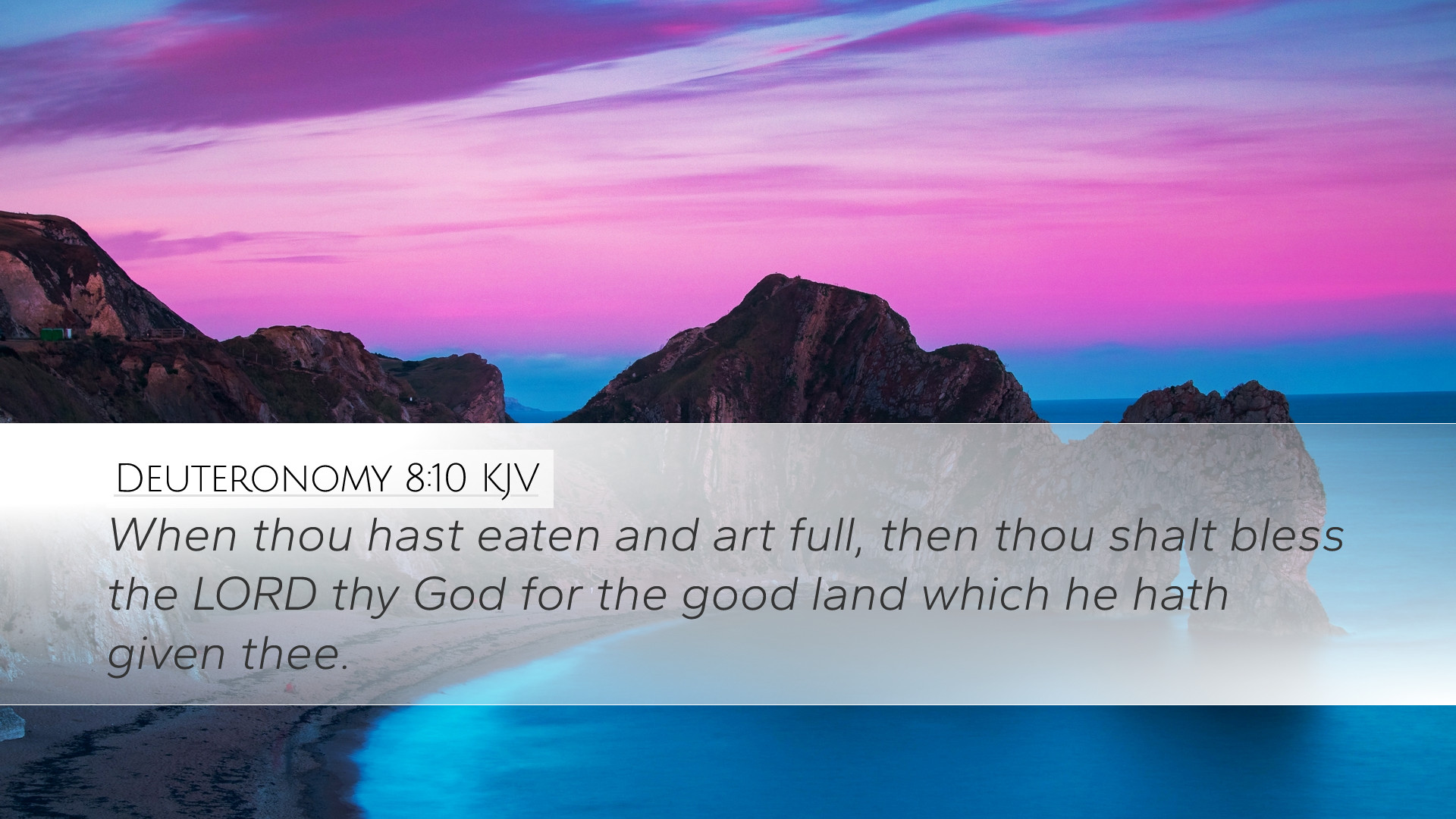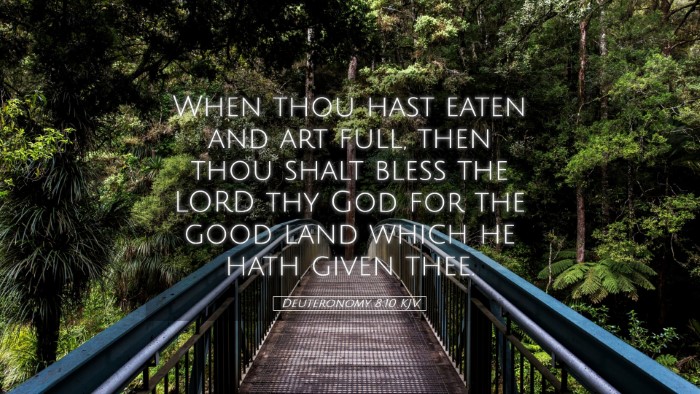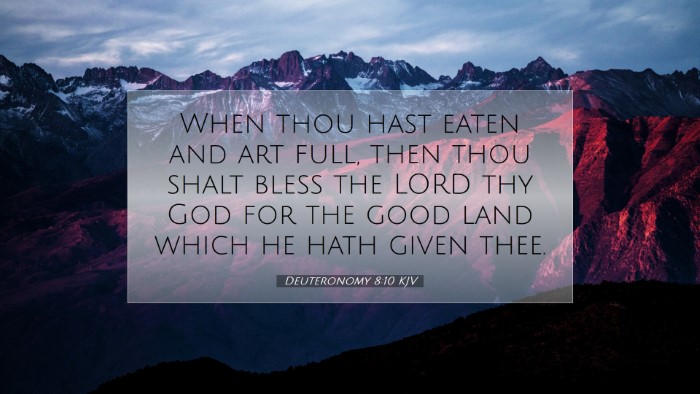Commentary on Deuteronomy 8:10
“When you have eaten and are satisfied, you shall bless the LORD your God for the good land which He has given you.”
Introduction
Deuteronomy 8:10 stands as a pivotal verse reminding God’s people of their obligations in times of prosperity. This commentary synthesizes insights from renowned public domain scholars, including Matthew Henry, Albert Barnes, and Adam Clarke, providing an in-depth exploration of its meaning and implications.
The Importance of Remembrance
Matthew Henry emphasizes the necessity of remembrance in the life of a believer. He suggests that reflecting on God's provision serves to deepen appreciation and dependence on Him. The act of eating and being satisfied is not merely a physical state but a spiritual experience that should lead to gratitude.
Albert Barnes expands on this theme, urging the faithful to recognize that their sustenance comes from God. He asserts that in moments of satisfaction, it is crucial to pause and acknowledge the source of all blessings, fostering a relationship of thankfulness and humility towards God.
Gratitude as an Act of Worship
Adam Clarke notes that to bless God upon eating signifies an act of worship. It transforms a mundane activity into a sacred ritual, acknowledging God’s sovereignty over physical needs. Clarke suggests that the Hebrew term for “bless” implies not only gratitude but also an invocation of God’s presence in the everyday affairs of life.
This verse instructs believers that every meal can be an opportunity for worship, turning routine into a moment for divine connection.
The Good Land: A Symbol of God’s Provision
This verse makes reference to “the good land,” which serves as a metaphor for the bounty and blessings that God provides His people. Matthew Henry interprets this land as not just a physical parcel but a representation of spiritual abundance available to those who follow God’s commandments.
Albert Barnes supports this view, interpreting the good land as a foreshadowing of the spiritual inheritance believers receive through Christ. It represents both the immediate blessings in one’s life as well as the future hope of eternal fulfillment.
Obligations of Covenant Relationship
Deuteronomy is fundamentally a book of covenant, and this verse encapsulates the obligations that stem from that relationship. Matthew Henry states that acknowledgment of God’s gifts is a vital aspect of the covenantal relationship. Blessing God is not just an expression of gratitude but a reaffirmation of allegiance to Him.
Adam Clarke further elaborates, suggesting that such acknowledgment is a reminder of the believer's duties towards God. In times of abundance, one must not become complacent or self-reliant, but rather rely on God’s past faithfulness to inspire their ongoing devotion.
The Nature of Enjoyment in Light of Thanksgiving
Here, the concept of enjoyment is challenged by the understanding of divine dependence. Albert Barnes notes that the invitation to enjoy the blessings of the land ought to be complemented by a commitment to bless the Lord. This duality fosters a worldview where enjoyment does not lead to forgetfulness, but rather to deeper acknowledgment of God’s role in every facet of life.
In practical terms, this establishes a lifestyle of constant thankfulness, where one learns that all joys are gifts meant to draw them closer to Christ.
The Community and Individual Responsibility
This verse also has profound implications for community dynamics among believers. Matthew Henry reflects on communal gatherings, suggesting that when one is blessed, they should share those blessings with others, thus promoting collective thanksgiving. This creates an environment where gratitude proliferates and encourages community support and unity.
Adam Clarke reinforces this notion, emphasizing that public acknowledgment of God’s goodness fosters a communal spirit of thankfulness, where, as a body, believers together recognize and celebrate God’s gifts.
Conclusion
Deuteronomy 8:10 stands as a poignant reminder of the interplay between divine provision and human responsibility. The act of eating and being satisfied becomes a profound call to worship and gratitude, transcending mere physical sustenance into a deeper recognition of God’s goodness.
This commentary, drawing from the insights of Matthew Henry, Albert Barnes, and Adam Clarke, highlights the importance of thankfulness, the covenantal obligations of believers, and the call to reflect on God’s providence in every aspect of life. As such, this verse challenges pastors, students, theologians, and scholars alike to embody a life marked by deep gratitude and acknowledgment of God's goodness.


